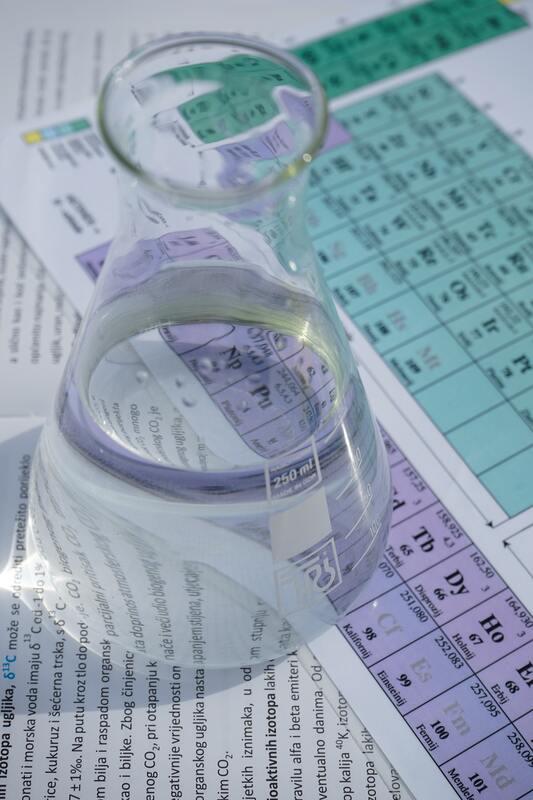Denatured Alcohol Vs. Rubbing Alcohol

Denatured Alcohol Vs. Rubbing Alcohol
Denatured Alcohol Vs. Rubbing Alcohol – Alcohols are organic compounds with one or more hydroxyl groups attached to a hydrocarbon chain. They have various uses at home and in industries as disinfectants, preservatives, solvents, and fuel additives.
Our particular interest is in comparing two alcohols; Denatured alcohol vs. rubbing alcohol. This article aims to explain the difference between the two alcohols and how they are used at home and in industrial settings;
What Is Heptane?
Denatured alcohol is pure ethanol that has been adulterated with denaturants to make it unfit foul-smelling poisonous, and discourage people from consuming it for leisure. 10% methyl alcohol is the most common denaturant added to alcohol. Thus, denatured alcohol is sometimes referred to as ‘methylated spirit.’ Other denaturants include benzene, isopropyl alcohol, ketones, castor oil, gasoline, and pyridine.
Denatured alcohol is used as a solvent in industries because it’s cheaper than the heavily taxed pure ethanol. It legally exists in three forms, depending on concentration. For instance, industrial denatured alcohol (IDA) contains wood naphtha used in detergents, resins, dyes, and printing ink.
Completely denatured alcohol (CDA) contains isopropyl alcohol, methyl ethyl ketone, and denatonium benzoate and is mainly for domestic use. On the other hand, trade-specific denatured alcohol is used for skincare products, perfumes, and cosmetics.
What Is Rubbing Alcohol?
Denatured Alcohol Vs. Rubbing Alcohol – Rubbing alcohol is any ethanol-based liquid or isopropyl alcohol that has been diluted with water. It consists of 70% isopropyl alcohol because the concentration is the most effective against germs. Thus, it’s a common household chemical for general cleaning. Rubbing alcohol got its name back in the 1920s because it was a major salve ingredient for massage.
In the 1920s, rubbing alcohol was different from today’s; it had a high concentration of methyl salicylates and perfumes, unlike today’s rubbing alcohol that only consisted of alcohol and water.
Uses Of Denatured Alcohol
Denatured alcohol has various uses at home and in industrial settings;
For Glass Cleaning
A diluted solution of denatured alcohol makes a good window cleaner because it evaporates quickly while leaving a streak-free shine. Put the denatured alcohol solution in a spray bottle and apply it to the glass. Then, take a lint-free towel and wipe the glass to get a clear look.
As A Disinfectant
You can use denatured alcohol to disinfect surfaces such as toilet seats, bathrooms, kitchens, and sinks at home. Denatured alcohol is also used to disinfect surfaces in pharmacies, hospitals, and laboratories and disinfect equipment in manufacturing industries.
As a Surface Cleaner
You can use denatured alcohol to remove grease and dirt from surfaces that traditional cleaners cannot remove. It can remove stains from wood, tiles, metal, and electronic devices. You can also use denatured alcohol to remove mildew from leather surfaces, but it’s unsuitable for suede, dyed leather, acrylic, vinyl, and unpainted surfaces.
As A Solvent
Denatured alcohol dissolves various substances like shellac for wood finishing. It also dissolves glues, waxes, gums, paint, and red wine. Furthermore, it protects wood from scratches and UV rays and gives wooden surfaces a smooth and shiny finish.
Pest Control
You can use denatured alcohol to spray bug-infested house plants or exterminate red spider mites. Mix five parts of water with five parts of denatured alcohol and use the solution to spray the infested areas. Leave it for a few minutes to dry naturally.
In Food Industry
Denatured alcohol is used in food industries to test pectin levels in homemade jams. Three teaspoons of denatured alcohol are added to one teaspoon of jam. If it forms small particles in a jam, pectin levels are insufficient. On the other hand, if it forms a thick substance, pectin levels are sufficient in a jam.
What Is Rubbing Alcohol?
Rubbing alcohol is also versatile and has the following uses;
As An Antiseptic
60% rubbing alcohol is effective against most pathogens. Thus, you can use it as an antiseptic for minor cuts, insect bites, piercings, and bruises. However, it might not be sufficient enough to kill all pathogens.
As A Surface Disinfectant
You can use rubbing alcohol to disinfect surfaces at home, hospitals, industries, and laboratories. It can also disinfect medical devices like thermometers, tweezers, scissors.
As An Astringent
You can apply rubbing alcohol to your skin to open the pores and refresh them before applying sunscreen or moisturizer. However, do not apply it to areas affected by acne or eczema because it can worsen the condition.
For Swimmers Ear
If water gets into your ears when swimming, you can use rubbing alcohol to remove it. Mix half a teaspoon of vinegar with half a teaspoon of rubbing alcohol to make a solution. Put it in a dropper bottle and put a few drops into the affected ear when lying on the side. Allow the solution to drain out of the ear. Do not apply this solution if you have an ear infection or a ruptured eardrum.
Making Homemade Ice Packs
You can make ice packs at home by mixing two cups of water with one cup of 70% rubbing alcohol in a zip lock bag. Put the mixture in a freezer for several hours and apply the ice pack on sore muscles and joints for pain relief.
For Household Cleaning
Rubbing alcohol can be used to clean blinds, make-up brushes, remove eraser markings, and deodorize shoes. You can also use it to make surfaces shinier by applying it on surfaces using a piece of cloth.
Cleaning Devices
You can use rubbing alcohol to clean devices, including mobile phones, computer mouse, keyboards, and DVDs. It evaporates quickly without leaving the gunk or damaging the devices.
Precautions When Using Denatured Alcohol And Rubbing Alcohol
Denatured alcohol vs. rubbing alcohol both are highly flammable. Thus, use them cautiously around fires and open flames. Both alcohols are dangerous and can cause poisoning when accidentally ingested. Additionally, both alcohols are permeable through the skin, and you should not bathe or soak in them. Finally, do not mix denatured and rubbing alcohol with bleach because they can produce toxic fumes.
Conclusion
Denatured alcohol vs. rubbing alcohol both have various uses at home and in industries. For instance, both can be used as cleaning agents and disinfectants at home and hospitals. However, both are toxic for human consumption and should not be ingested. Both are highly flammable and should be used cautiously around fires and open flames.
